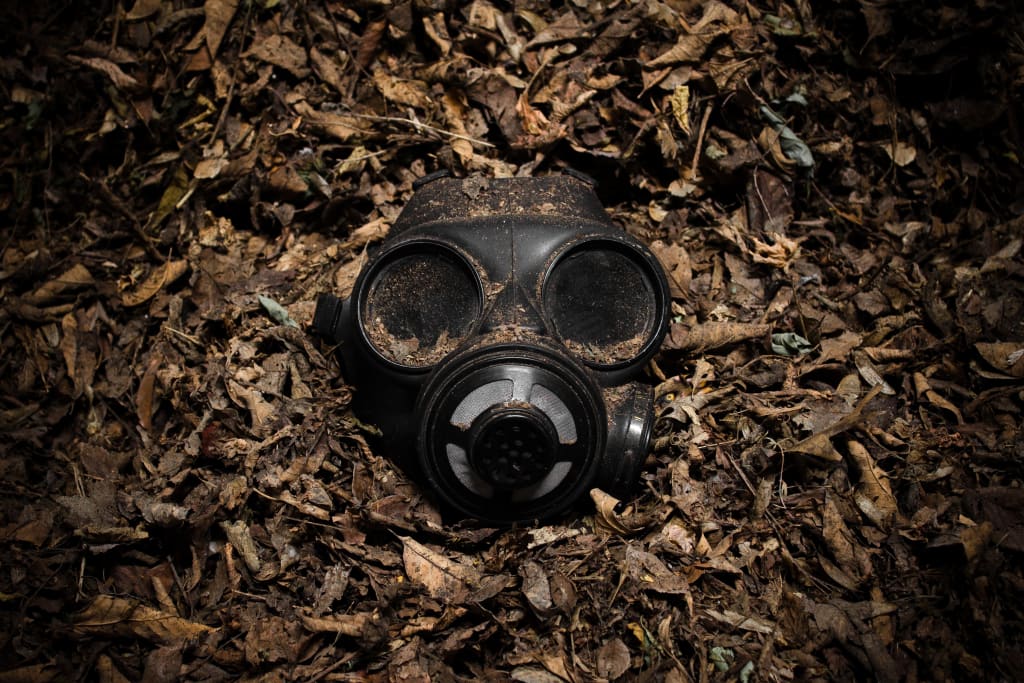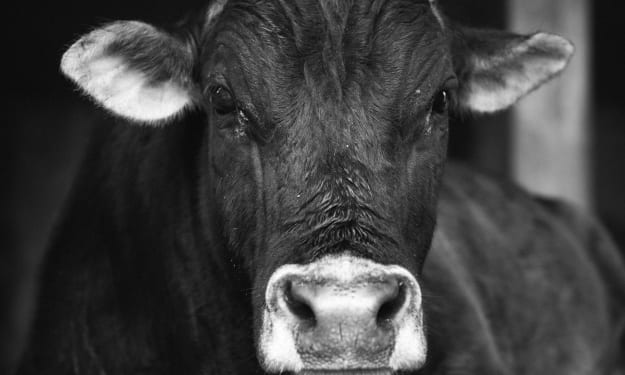Gaslight
American Resistance

New Orleans, LA (1987)
Condensed water gathered on the window outside a bedroom in Bywater, New Orleans, Louisiana. Aaron Randel took the intermediate phalange on his right pointer finger and swiped at the glass as he lay on his left side, momentarily creating a portal to the outside world; the quiet, cracked street lined with hibiscus flowers and bathed in a blue-purple glow from the waxing moon at 4:12 a.m.
Down an alley one street over, between yellow, pink, and candy blue bungalows, a woman danced barefoot to music audible only in her head, smiling to herself in recognition of and gratitude for her beauty that was the freedom in her gait. Her eyes saw past the third dimension in front of her, and on her hip jingled coins from an era believed by most to have never existed. The secrets she kept in silence were louder than all the sounds in the world joined together. Aaron didn’t know of her presence, but a part of him felt her, and the romance of her energy called his mind through the portal he’d opened.
A single, top-secret tour in the desert left Maj. Aaron Randel sleepless most of the time, most nights.
∆∆∆
The second time the world tried to commit suicide unsuccessfully launched a new great tension, the Cold War, between two powerhouses on either side of Europe. After WWII ended, each powerhouse started picking countries, and at times factions, strategically, for its team, like captains in Red Rover on a playground during recess. A couple of those playground kids had oodles of a vital resource, and most other kids had none, so their loyalty was crucial.
Revolution in Iran drew a Sunni leader in Iraq to believe that Iran’s weakened state rendered it prime for takeover, and the two kids with that unholy resource started fighting with one another over ideologies. The powerhouses aligned themselves accordingly, propping up one against the other in various ways, each hedging their bets with ostensibly conflicting political and militaristic movements.
The provision of Boeing aircraft to Iraq by the United States necessitated training of Iraqi military under Saddam Hussein how to operate and maintain those aircraft. Aaron, an expert in flight communications in the United States Air Force, was ordered to descend upon the desert in attendance with one Mr. Rumsfeld in December of 1983. He did as he was told, without question, as all good soldiers do.
The public was largely uninformed of the extent of United States involvement in the Iran-Iraq War of the 1980s.
Ex-military commandos roamed the desert, strategically and selectively exterminating and quashing that which needed it, as directed by quasi-government officials, and ensuring the safe passage of friendlies through dangerous territory, all in the name of stopping the spread of the disease of communism. It required Olympic-level intellectual acrobatics to trace the justifications for their actions, and most of the commandos weren’t rocket scientists. It mattered not. Those considerations were far, far above their paygrade. They did as they were told, without question, as all good soldiers do. Once a soldier, always a soldier.
∆∆∆
4:36 a.m. Aaron knew there was no turning back now. He got up slowly, as quietly as he could, but the bed squeaked and the floor creaked.
“Mmm…good morning, Papi.” Rosa didn’t open her eyes, but she smiled, her voice sweet as a powdered-sugar-dusted beignet. Aaron recoiled and his voice was hushed. “Sorry.” He left and she went back to sleep.
∆∆∆
Rosa Perez was a sight to behold, even while she slept in a puddle of drool, even with her hair knotted and ratty (as curly hair is in the morning), even with her morning breath, and even with her night farts. Rosa passed gas in the night, an unconscious habit that could wake the Dragon Smaug in Middle Earth from their tiny bedroom in Bywater. They were innocent, her farts. Rosa would never have suspected herself if Aaron hadn’t told her. Aaron remembered that morning fondly.
It was seven months into their budding relationship, and they had just moved in together. Rosa wasn’t one for elaborate morning routines when she lived alone, but she wanted to show up for Aaron in a way that she hadn’t for anyone before, not even herself. She was in the kitchen in a heather gray tank top, braless, in modest, carnation pink silk panties, her hair up in a bun that had fallen to the side of her head, her mocha cappuccino skin smooth as a latte in the pale morning light of a New Orleans winter. Rosa was a sucker for old Tejano tunes, and she hummed one quietly while the smell of the blueberry pancakes she stood over filled the air. Aaron had been standing behind her for some time before she noticed. Rosa’s surprise was overdetermined, but her smile could disarm a serial killer.
“Coffee?”
Aaron didn’t say anything, unable to due to his lack of alertness before his morning drug infusion. He plopped down at their kitchen table that they’d found in an alley behind a mansion in the ritzier part of town.
A ballerina in another life, Rosa was light on her feet. She glided over to the pot and poured Aaron his brain into a cup from one of their trips to the Florida Coast. Life’s a Beach.
Aaron had moved to the couch the night before and Rosa took handing him his coffee as an opportunity to investigate. “Babe, why’d you move from the bed last night? Sleep okay? Something I said?” Rosa had a social anxiety she self-medicated with marijuana, but when it wore off, she found herself going over and over and over the interactions of her past. She hadn’t yet toked that morning. Aaron knew he had to tell her.
“Has anyone ever told you…” Rosa, sorely mistaken, smiled like a little girl, chin down, eyes wide, thinking he was going to tell her how beautiful she looked with no makeup on. “You fart.” Rosa’s nose cinched. “At night. In bed.” Aaron put down his cup of coffee, his tongue on the roof of his mouth, which was turned upside down and open. Rosa stared blankly at him, trying to deduce whether a joke was present. It wasn’t.
Aaron attempted to make light of the situation. “If I’d have known I’d need a gas mask to move in with you…” A smile broke across the right side of Aaron’s face. Rosa’s eyes grew wider; the only movement she made.
∆∆∆
“Put on your gas mask.” The small prop plane had just made a crash landing in northern Iraq, and the dust was settling around Jassim Fahd and Aaron after about an hour in the air. Shot down by Kurdish forces, Aaron struggled to get his bearings and recounted the last few moments before their landing.
Jassim, a young, but bright, Iraqi military pilot recruit who had taken a liking to Aaron over the last month in which Aaron trained him in flying the new Boeings, and who invited Aaron to fly with him “in his plane” so Jassim could “show the American how things are done in Iraq,” had drastically and dramatically lowered the cruising altitude of his Sukhoi Su-22, and flipped a switch, stimulating an indicator light near his left leg to become green from red. Not twenty seconds later, they were attacked by antiaircraft missiles.
On the ground, all cockpit indicator lights flashed on and off, and smoke emanated from the aircraft. Aaron put on his gas mask, as he was told. Jassim pushed him out into the darkness. They ran.
It wasn’t long after that they heard wailing women, screaming men, and children crying out for their parents. Beyond these horrid sounds of war, only dead silence prevailed. Aaron looked at Jassim, who was all of twenty-three. “What happened? What is that?” Jassim’s eyes watered. It was then Jassim knew. “I was only following orders!” Aaron pushed him. “What have you done? What have you done?!” Jassim did not pick himself up, and instead, lay upon the dirt in the fetal position.
Eventually, he spoke, but only loud enough for an ant to hear. “I didn’t know. I am only a soldier.”
Aaron needed to know what they’d done. He left Jassim on the ground after warning him not to leave and slunk forward, towards the chaos, towards their sin. As he drew nearer, the weight of death pressed against his chest, ushering him back toward ignorance. But Aaron pushed on, and when he reached the edge of the village, he felt largely only numbness.
The bodies of hundreds of women, elderly, children, and men lay in the dirt street connecting the small huts housing families. Women atop their infants in a vain attempt to protect them lay dead in the street. Aaron locked eyes with a little girl whose face had turned blue, whose eyes were bulged and bloodshot, who left her carcass in the street in the crawling position. There were so many. So many.
Aaron went back to Jassim, intent on killing him. When Aaron arrived where he left the young pilot, Jassim was gone. Aaron didn’t spend much time looking, and instead disrobed, including his mask, and headed back to the village, where he identified himself as a lost United States soldier in need of food, water, and shelter; where he helped the Kurds pile their dead in the street; where he was treated with kindness and met with generosity; where he found himself hoping to die. In all, more than 3,000 children were slaughtered in one fell swoop.
Aaron left in the morning and made it back to Baghdad by the grace of God.
∆∆∆
4:42 a.m. IBM had recently released its PS/2, and Aaron made sure he had one. He logged onto Usenet and found himself on the alt board, searching for someone, for anyone, who he could speak to anonymously about what he had seen, about what he had done.
Loneliness is a gateway drug. Aaron found himself conversing with three other veterans who had seen similar things, who had done similar things. A few months passed, and Aaron was hooked. Revealing and receiving secrets is a sacred act, and Aaron was soon emotionally beholden to these men, despite their lack of physical interaction and his lack of confirmation that they were who they held themselves out to be. It was soon after that this intimacy engendered loyalty, and they wanted to meet. They needed to meet.
Aaron bought a plane ticket to Sarasota, Florida, and flew out to meet Roger Hummel, Jacob Green, and Shawn Bolder. It was there they admitted, to each other and to themselves, that the reasons for the orders they’d been given as soldiers did not constitute the full story, that they had risked their lives for concepts and people they did not know without consent, under the guise of good, and that they would spend the rest of their lives doing something about it. It was in Sarasota, Florida, that DarkArm was created; a worldwide conglomeration of anonymous persons aligned and working against the rise of fascism, which existed and proliferated most surreptitiously in the land of the free.
About the Creator
Grace Turner
Grace Turner is the penname for an American attorney & mediator practicing in Texas and Colorado whose anonymity means a great deal to her.
Grace is also a dancer, musician, backpacker, artist, dog mother, and devoted wife.






Comments
There are no comments for this story
Be the first to respond and start the conversation.